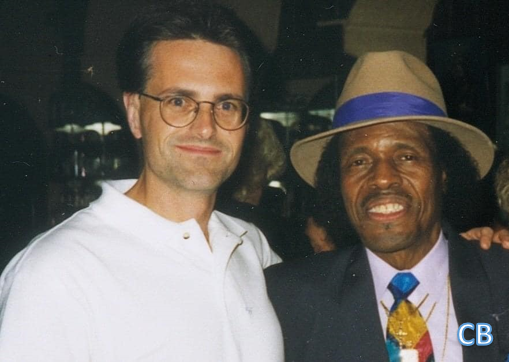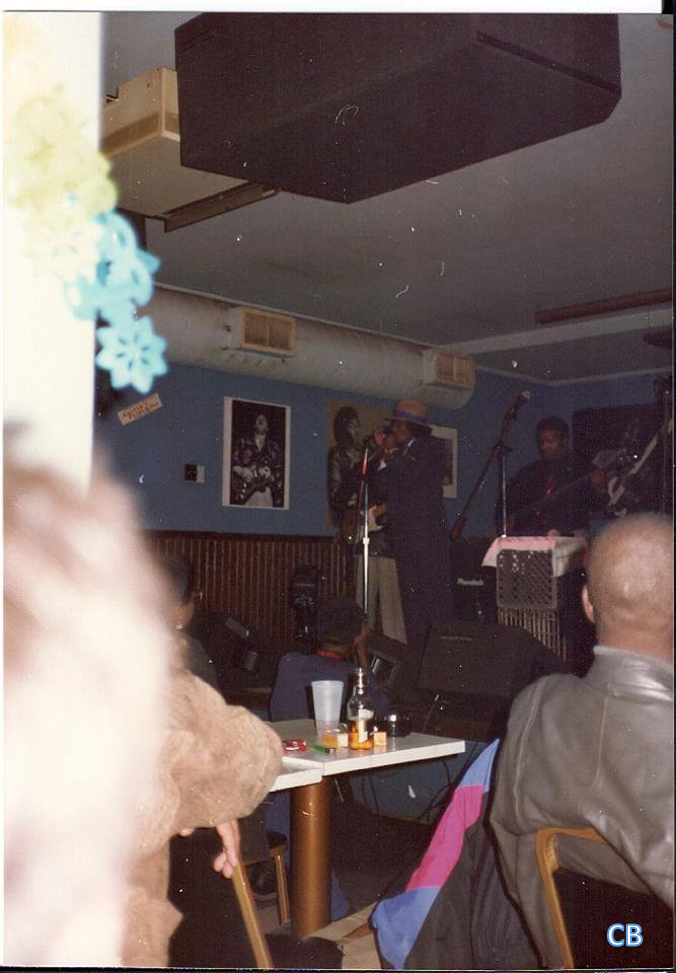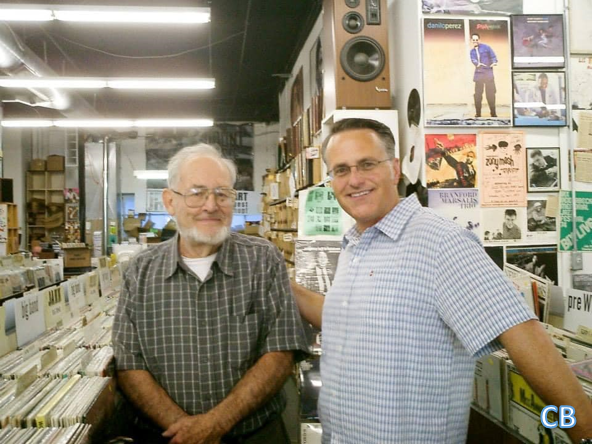Recommended Blues Recording
Junior Wells – Authentic Chicago Blues From The Southside
Junior Wells – Southside Blues Jam – Delmark DE 628
This is as close as a “recommended” blues recording that I review will ever get to an “essential” blues recording. Period.
It’s tough reviewing blues recordings, and writing about the blues, because no matter how hard I try, my biases are going to eventually show. I noted this back when I got my Masters Degree from Indiana University and did my graduate thesis on the notion of travel in blues lyrics. As a component of that capstone project, I included an addendum that represented 50 blues recordings that I considered essential to any blues collection. When I look back on that list, I can glaringly see my inherent predispositions, but that is not unique to me. No less a music writer and reviewer than Peter Guralnick noted in one of his fine books that he suffers the same consequence.
But with Junior Wells, I am more than a little jaundiced. From the first time I heard Wells on record, saw him in-performance in both large and very small venues, met him, and reviewed his many blues recordings, I have held him in the upper ranks of blues tradition.
Wells’ 1965 Hoodoo Man Blues, his seminal recording on the Delmark label, ushered in capturing a working Chicago blues bands on recordings, with the result being heralded, and rightfully so, as one of the most important blues recordings of all-time.
Southside Blues Jam was Wells’ second release on Delmark, with Bob Koester’s vision for the recording to be an attempt to try to seize what a patron at the famed Theresa’s Lounge on S. Indiana Ave. in Chicago might hear on any given evening. For those of you who aren’t aware, Bob Koester was the visionary behind Delmark Records and Chicago’s great Jazz Record Mart, a man who was instrumental in all things blues and jazz in Chicago (and really, the world), and an American musical treasure whose devotion to the blues and jazz shaped musical tastes and careers for decades.
This 1970 release, instead of relying upon a regular working blues band, featured a deep well of talent, but were not bluesmen who frequently worked together, though Wells did use them more than occasionally. Perhaps a baseball analogy is in order. The 1927 New York Yankees featured Babe Ruth, Lou Gehrig, Earle Combs, Bob Meusel, and Tony Lazzeri, a team that was nicknamed “Murderer’s Row” for their sheer collective talent base. On Southside Blues Jam, Wells is joined by blues guitar titan Buddy Guy, the mighty blues piano master Otis Spann, Chicago blues guitar giant Louis Myers, blues-drummer-without-peer Fred Below, and superb blues bassist Earnest Johnson; the argument can appreciably be made that this was the blues’ equivalent of a “Murderer’s Row” on the late 1960s/early 1970s Chicago blues scene.
Recorded over the course of two sessions in December, 1969 and January, 1970, at Sound Studios in Chicago, the results are simply awe-inspiring. Wells, as Koester has noted, had that capacity for being able to make the listener feel as though he was singing to them and only them, and his capacity to do so is ideally featured here. Wells’ vocals are impassioned and deeply personal, weaving blues stories aplenty, leaving no emotion without its due; he gives each syllable its maximum accounting to convey the feeling behind it. He cries, wails, pleads, and prophesizes with all extremes between subtlety and boisterous directness.
Junior’s’ harmonica workouts supremely provide all necessary shadings to the blues he deploys, being capable of dark, foreboding hues, and also being expert to jump with joyous melodic cadences. His is a blues harmonica textbook unfurled.
Guy’s guitar hides just in the background at its restrained best, answering Wells’ call to action within all boundaries of sublime control and searing infernos of response. Bravo, indeed! And by the way, Guy’s vocals on one blues are an exercise in blues passion and emotionalism.
Myers’ contributions are indicative of his correctly acknowledged position as a tactician of Chicago blues guitar framework. He is the consummate blues guitar accompanist to this excellent blues assemblage.
In many respects, Spann’s efforts are the glue of this session. In what turned-out to be Spann’s final recorded effort (he passed away in April, 1970), his strong, roiling, churning, and interspersing piano fills and runs exquisitely bolster each song, and afford elements of heightened moods that Wells was aiming toward. Simply stunning work, indeed!
Below brings his masterful percussion proficiencies that are idyllically suited to Wells’ desire to carry forth the virtuoso ends he sought. Anything less than Below’s efforts would have been tragic to this collection, and Below dispenses blues percussion faultlessness.
Johnson’s solid bass command is the underlying foundation of the proceedings, and the pedestal upon which all else sits.
I remember like it was yesterday seeing Junior hold court at The Checkerboard Lounge at 423 E. 43rd St. in Chicago, resplendent, as always, in a colorful, tasteful suit befitting the blues peacock commanding the club’s tiny stage. When I listen to Southside Blues Jam, I harken to that evening. Indeed, this is Junior in-performance on his turf. And, it is magnificent!
Highly-recommended without any qualification! Your blues collection needs this Junior Wells assemblage; without it, is has a glaring hole.



